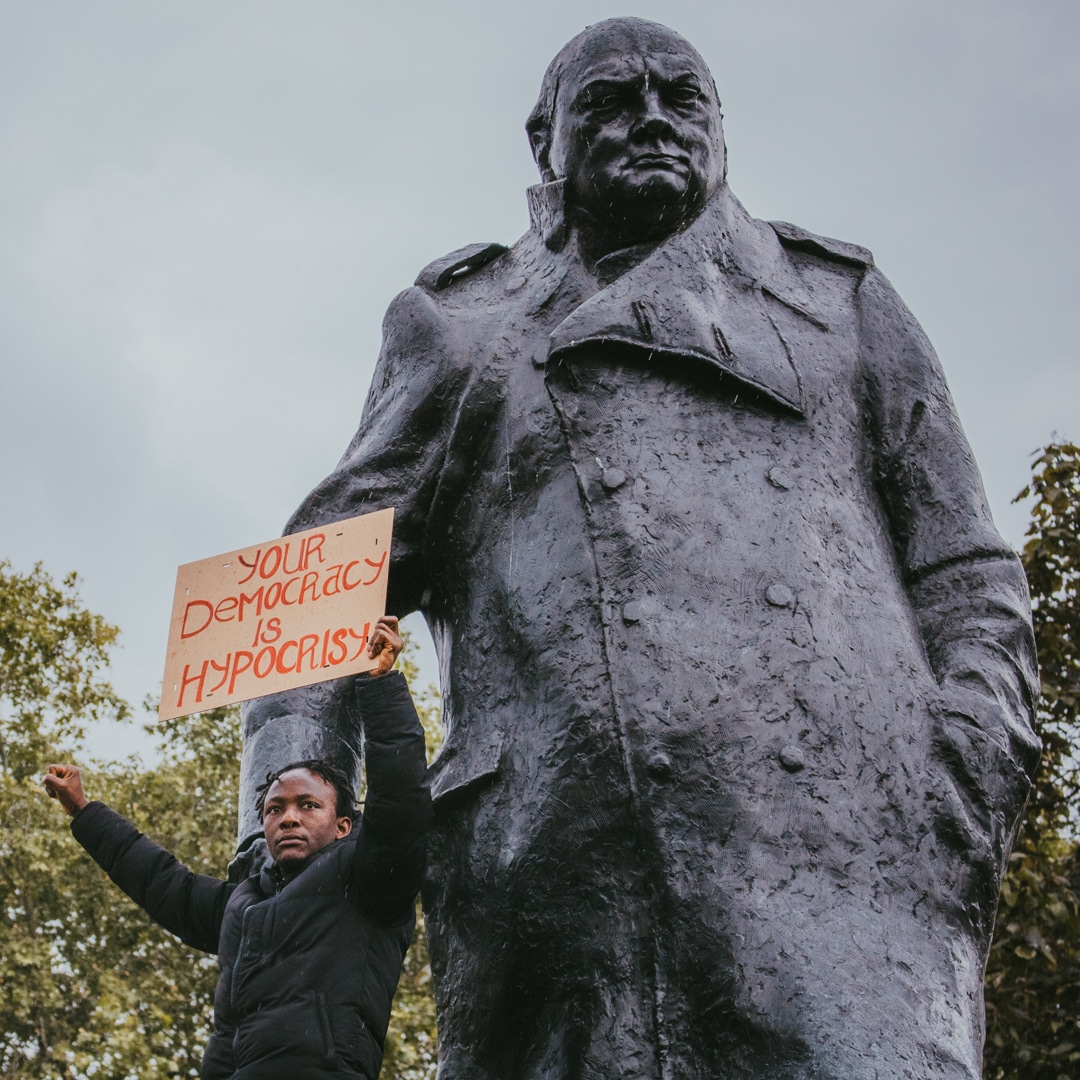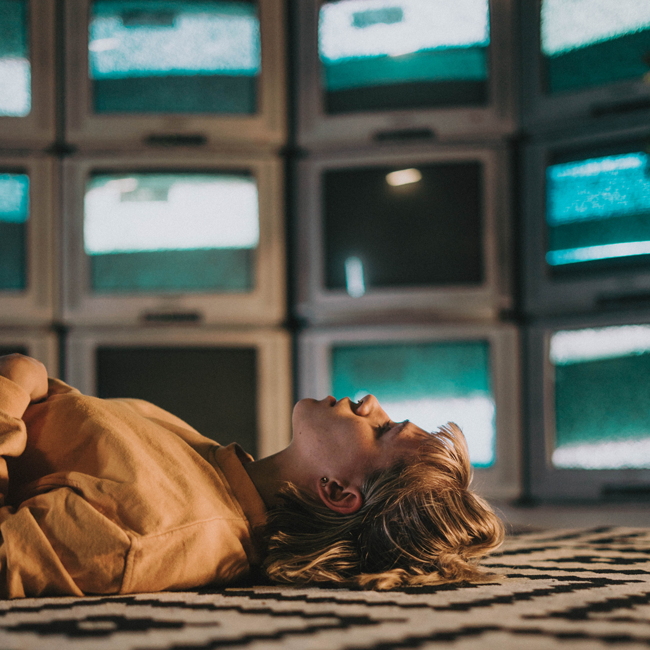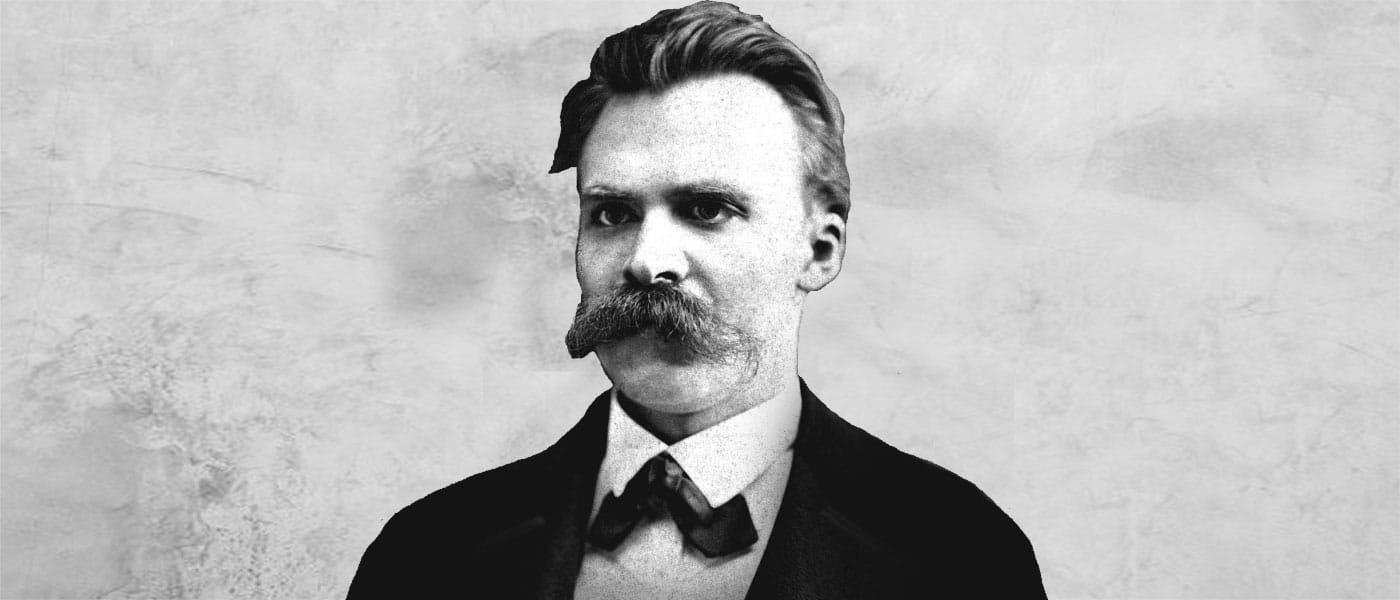Lisa Frank and the ethics of copyright

Lisa Frank and the ethics of copyright
Opinion + AnalysisSociety + Culture
BY Kieran Cashin 30 JAN 2024
Have you heard the song Lisa Frank 420 / Modern Computing by MACINTOSH PLUS? Even if you haven’t listened to it – you’ve probably heard it.
A buffering YouTube video, the visual glitches of a struggling graphics card, screen burn, unintelligible corrupted files – personified in vocals slowed to wordlessness, drums overlapping at conflicting time signatures and song structure only foundationally laid to be pulled out from underneath you – this is the spirit of Lisa Frank.
The YouTube upload of Lisa Frank has 23 million views. However, this upload is unofficial – there is no place you can purchase Lisa Frank, and uploading it anywhere on the internet is technically illegal. This is because Lisa Frank uses an unlicensed sample of It’s Your Move by Diana Ross. Any upload of the tracks is targeted with DMCA takedowns, or requests from the owners of the masters (record labels) that 100% of the revenue be diverted to them.
This isn’t ethical. Although copyright conceptually is generally uncontested in mainstream society, in this essay I will make the radical assertion that it foundationally enables the worst tendencies of capitalist societies and limits artistic expression.
There are two common angles in favour of copyright protection –
1. Copyright protects artistic intent and originality
This position argues that an artist has an inherent right to control their work. However, this is not the case and is only sensible when you individualise artworks to singular figures. Although useful in discussing commonalities between works, it is quickly outmoded in any other context.
When an artist releases a work, is it necessarily theirs? Do they have the right to control and change the work’s context and reaction?
The original version of Star Wars has been altered over years of reduxes and remasters and is no longer available to legally buy or stream – which is ostensibly an obscuration of the original film’s groundbreaking advancements that make it important to film history.
The changes to the film were essentially Lucas’s testing ground for his new special effects technology – although he insists on his changes simply because they are his, never mind the fact that the film is only special because of the audience’s appreciation of it, and it has no value independent of that appreciation.
Also, said appreciation it is not due to some quality inherent to the director, but rather due to the collaborative effort of hundreds of individuals: cinematographers, actors, set and costume designers, editors, VFX artists, folie / sound design artists and composers – don’t they all deserve some degree of control over these alterations?
Further, this mindset fails to take into account the transformative nature of art. Going back to our Lisa Frank example – the song is unrecognisable from the original sample, very clearly showing original thought, execution, and effort exerted in transforming the song into its own entity. Lisa Frank is far and away different from Diana Ross’s original recording, and yet according to copyright law, it is wholly the sum of its parts and thus at their behest.
There is no denying that plagiarism is a real phenomenon, but in copyright law it is conflated with what is merely derivative, leaving no room for nuance.
This flies in the face of the very nature of art – to eternally question and transform the structures around it (including other pieces). This suppression is very directly bad for art and artists.
Let’s examine the next common justification for copyright.
2. Copyright ensures that artists are correctly monetarily compensated.
This claim is partially true – monetarily compensated, yes. Correctly, no. The royalties/residuals system copyright operates on creates vast injustices in the compensation of artists.
Actors such as Emma Myles received residual checks as low as $20 for a role on Orange is the New Black – an immensely successful show that essentially made Netflix popular. Her work is managed by the conglomerate, and they control her earnings – and they can give her as little as they like.
Did you know that Diana Ross, the singer of the original recording of It’s Your Move, doesn’t actually own the masters to her recordings? She receives similar residuals, and granted, they’re probably much more than Emma Myles’. However, she is not actually in control of who uses her music – that right is reserved by Sony Music Entertainment. Diana Ross – at 79 years of age – likely doesn’t use the internet extensively enough to know anything about Lisa Frank or how her music has been used.
Obviously, these corporations don’t have a complete monopoly – another artist famous for not owning her masters, Taylor Swift, got hers back through a few legal battles and a lengthy re-recording process. However, she is uniquely privileged in this situation being a literal billionaire with essentially infinite legal power. Many other artists, even with a very clear cut case, don’t have the resources to fight back for control of their work.
This is because copyright, as a product of a capitalist system, is merely a symptom of the unjust society that produced it, inherently advantaging those with accumulated wealth.
In many ways its illegal status is an integral part of Lisa Frank. She is an internet vampire, signalling the decaying underbelly of our world, she beckons us away — it’s her move now…
‘Lisa Frank and the ethics of copyright‘ by Kieran Cashin is the winning essay in our Young Writers’ Competition (13-18 age category). Find out more about the competition here.

Ethics in your inbox.
Get the latest inspiration, intelligence, events & more.
By signing up you agree to our privacy policy
You might be interested in…
Opinion + Analysis
Society + Culture
Save the date: FODI returns in 2020!
Opinion + Analysis
Politics + Human Rights, Society + Culture
On truth, controversy and the profession of journalism
Explainer, READ
Society + Culture
Ethics Explainer: WEIRD ethics
Opinion + Analysis
Politics + Human Rights, Relationships, Society + Culture
The ethics of tearing down monuments
BY Kieran Cashin
Kieran is 15 years old and attends Newtown High School of the Performing Arts. Passionate about all forms of art and media, Kieran is interested in exploring complex questions about pop culture and the human condition through the mediums of film and writing.
What we owe our friends

Friendships are confusing. I’ve often found myself feeling that something is missing in my friendships — a sentiment that seems to be shared, yet rarely addressed. One that’s echoed in the paradoxical 21st century correlation between our ever growing hyper-connectivity and reports declaring a loneliness epidemic. One that’s felt in parties full of friends that you can’t wait to leave.
Like many of us, I have learnt that this is partly down to the culturally accepted life cycle of friendships. I never felt lacking when I was younger: I had deep bonds with childhood friends, who I did the wild adventures of youth with, but also spent infinite hours in pyjamas with, drinking tea and learning how to build loving relationships. But as plans with friends became plans reserved for partners, and time became stretched by work and adulting, I slowly processed the idea that their importance will silently decline as you age.
But I’ve also had a nagging sense that something more unspeakable affects the quality of our friendships. Something resigning friendships to the trivial and fun, and shaming a desire for deeper bonds.
It wasn’t until I read The End of Love by Eva Illouz that I felt able to articulate what this is, and why it is so hard to talk about feeling disappointed by friends. Through an extensive analysis of social relations under consumer capitalism, she makes a simple central point: freedom, the value that trumps all for western society, requires the dissolving of expectations in human relationships.
In an age of abundance, the defining feature of 21st century liberal social relations is the practice of non-commitment. Personal autonomy is the main cultural story that guides our lives. We’re driven by the search for personal success and pleasure. To realise this, we must be free to choose our own relations at will, and therefore also leave them at will. We make responsible choices to avoid things that might impinge on our personal growth, including that relationship stopping you from moving, or that friend whose chaotic period has gone on a bit too long.
So we have relaxed our mutual expectations on each other — almost to the point of having none at all.
The value of freedom has transcended left and right politics, and is accepted as an untouchable pillar of morality. Self empowerment has been the prerogative of many left wing progressives as much as neoliberal free-marketers. It’s found in the language of capitalist growth and competition, but also in the language of pop-psychology that tells us to set boundaries and cut people out of our life who don’t ‘serve’ us or bring us pleasure.
But Illouz reopens this debate that has been closed since liberal philosophy claimed hegemony over morality, asking us ‘does freedom jeopardize the possibility of forming meaningful and binding bonds?’
I think about the hollowed expectations we have of our friends. Flaking is normal. We tend to leave maximum space to opt out of plans whenever and minimum pressure to commit, generally resigning ourselves to polite understanding if people cancel even when it hurts, knowing that we often do the same. Asking for support is also done cautiously to avoid overstepping, burdening or offloading, even in our greatest moments of need.
And then there are the ways in which many friendships silently end. When I was 22, after an ongoing period of difficulty where we both hurt each other, one of my closest friends sent me a facebook message telling me she never wanted to speak again. Despite my ongoing attempts in the coming years to reconcile, she stuck to this conviction, and I have only seen her in passing at parties since then. A long term friendship was suddenly gone with minimal discussion, and the invisible rulebook of friendship said that this was fine.
Friendships which diverge from the comfortable space of convenience, ease, and fun can quickly become threats to our personal growth. Consumers at our core, we are well practiced in disposing of things that don’t benefit us anymore and less well practiced at fixing broken things. Systems make their way into our bodies and minds, and the system we live in is one built on endless desire and access to the new. In such a society we owe our friends nothing. We might choose to owe them, but we don’t have to.
We sense this fragility. We know on some level that if friends can exit at any moment without consequence, we must persuade them to stay. Friendship mimics a market in which you must compete to survive, and we are all painfully aware of the limits of what our commodified selves can offer. In this knowledge, socialising often becomes fraught as we feel this pressure to bring something positive to the room that wins us a good review after. Those who lack status built by resource, health, and charisma struggle more, their exclusion a reality made invisible by the language of choice.
The psychologist Sanah Ashan tells us that falling apart is a birthright. For us to feel connected, our relationships must embrace discomfort. Friendships shouldn’t be intolerant of prolonged messiness. We must instead embrace the misery and the insanity; coming together in these times not running away. Intimate bonds are difficult.
We live in an age where traditional sites of belonging have been diminished — religion, community, even family and romantic relationships are more uncertain than they have ever been. Public care structures have been decimated to the point of dysfunction. More and more of us find that we have to make our own communities of care and belonging, found in the friends we make ourselves.
Yet conversation about building these communities is often superficial when we don’t know how to be close to each other. We long for community, but often turn to therapists in our times of need.
Re-envisioning how we build strong and enduring bonds requires us to open a conversation that asks bigger questions than how we balance time between work, relationships, and friends. It requires us to question the promises of fulfillment from personal freedom alone. Wendy Brown reminds us that achieving, and even envisioning personal freedom is far from straightforward:
‘historically, semiotically, and culturally protean, as well as politically elusive, freedom has shown itself to be easily appropriated in liberal regimes for the most cynical and unemancipatory political ends.’
The left has been good at unpicking how the appeals to freedom have created unjust markets and vast inequalities, but we haven’t openly discussed the effects of this in the world of emotions and relationships. The practice of non-commitment in our relationship building mimics the rise of the gig economy, precarious work, and the breakdown of worker solidarity. Free market economics sacrificed security and equality in the name of unfettered growth. We must ask whether the same might be happening in our social relations.
We all yearn for connection, yet our disdain for responsibility in the name of freedom keeps us apart. But we owe our friends something different to the transactional relationships of the capitalist workplace; we owe them love and time regardless of the value they offer us.
‘What we owe our friends‘ by Zoe Timimi is the winning essay in our Young Writers’ Competition (18-30 age category). Find out more about the competition here.

Ethics in your inbox.
Get the latest inspiration, intelligence, events & more.
By signing up you agree to our privacy policy
You might be interested in…
Opinion + Analysis
Relationships, Science + Technology
We are being saturated by knowledge. How much is too much?
Explainer
Relationships
Ethics Explainer: Lying
Opinion + Analysis
Relationships
Do we have to choose between being a good parent and good at our job?
Big thinker
Relationships










